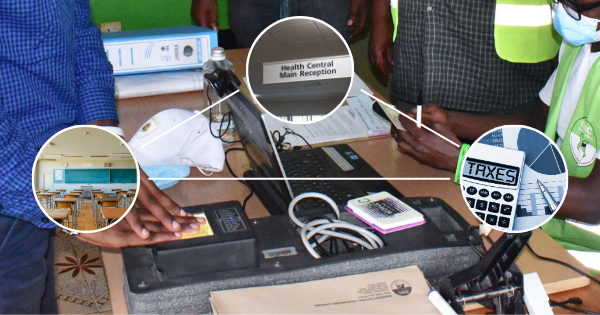By Boniface Harrison – Social Development & Climate Action
From 8th to 10th September 2025, leaders from across Africa gathered in Addis Ababa, Ethiopia, for the second edition of the Africa Climate Summit (ACS2). The Summit, which brought together Heads of State, African Union representatives, development partners, financiers, and climate actors, aimed to accelerate collective action against climate change while positioning Africa as a global leader in climate solutions.
The Africa Climate Summit was first held in Nairobi in 2023 to give Africa a unified voice on climate issues. Two years later, ACS2 returned with greater urgency, as the continent continues to face the brunt of climate shocks such as floods, droughts and landslides, despite contributing the least to global emissions.
Adoption of the Addis Ababa Declaration
At the conclusion of the summit, African leaders officially adopted the Addis Ababa Declaration on Accelerating Global Climate Solutions: Financing for Africa’s Resilient and Green Development, marking a historic moment. The Declaration calls for justice, fairness, and Africa-led solutions on the global stage and it seeks to reframe the continent from a position of vulnerability to one of leadership.
Alongside the Declaration, leaders also endorsed the Flagship Report of African Climate Initiatives and launched the Africa Climate Innovation Compact, underscoring their commitment to homegrown climate responses. Nature based solutions were highlighted as a gateway for resilience and green growth, with Ethiopia’s Green Legacy Initiative hailed as a continental model.
Key Commitments
The Addis Ababa Declaration emphasizes:
- Strengthened support for African led initiatives such as the Great Green Wall Initiative, the African Forest Landscape Restoration Initiative, and the Ethiopian Green Legacy Initiative.
- Mobilizing 50 billion dollars annually for a new continental climate solutions initiative spearheaded with the leadership of Ethiopia’s Prime Minister Abiy Ahmed.
- Scaling up renewable energy, recognizing that more than 600 million Africans still lack access to electricity.
- Pushing for stronger international commitments to close the climate financing gap, particularly through grants for adaptation.
During the opening of the summit, leaders presided over a major deal between African development financiers and commercial banks to mobilize 100 billion dollars for green power generation. This is a step towards addressing Africa’s estimated 3 trillion dollars climate financing needs by 2030, a stark contrast to the 30 billion dollars received between 2021 and 2022.
Leaders’ Voices
President William Ruto challenged the international community to step up contributions for adaptation and mitigation to complement Africa’s bold approaches. He reminded delegates that the Nairobi Declaration of 2023 demonstrated Africa’s resolve to make climate action a driver of growth, jobs, and transformation.
He called for reforms in global financial institutions, lower financing costs, increased concessional funds, and fairer trade regimes that unlock Africa’s potential in renewable energy, climate-smart agriculture, and green industrial products.
In his closing remarks, Ethiopian President Taye Atske Selassie declared that Africa is not a victim of a crisis it did not create but “a global centre for climate solutions.”
“Our vision is clear. We are committed to forging a prosperous, resilient, and green continent,” he said, stressing that climate action must begin with massive investment in renewable energy and climate justice.
Speaking on behalf of African Union Commission Chair Mahmoud Ali Youssouf, AU Commissioner for Political Affairs, Peace and Security, Bankole Adeoye, stated that the summit had shifted Africa’s climate agenda “from crisis to opportunity, from aid to investment, and from external prescription to African led innovation.”

A Turning Point for Africa
The Addis Ababa Declaration signals a pivotal step in Africa’s climate journey. It reflects a determination not only to adapt but also to lead, shaping global climate policy while demanding fairness and investment.
Africa has strengthened its position as a champion of climate resilience and green development. The challenge now lies in translating these commitments into real change on the ground. How best do you think the outcomes of the summit resonate with your local work? There is a pressing need to merge local efforts with regional and global actions so that communities across Africa can be safeguarded and empowered in the face of climate change.
Join our WhatsApp channel here for inspiring insights on social issues





One Response
It’s a noble commitment. Let’s stand as Africans together we can do it. Moving away from crisis to opportunities, from aid to investment and from external prescription to African led innovation. The summit outcomes should be integrated in our community local plans on climate change mitigation and adaptation strategies.